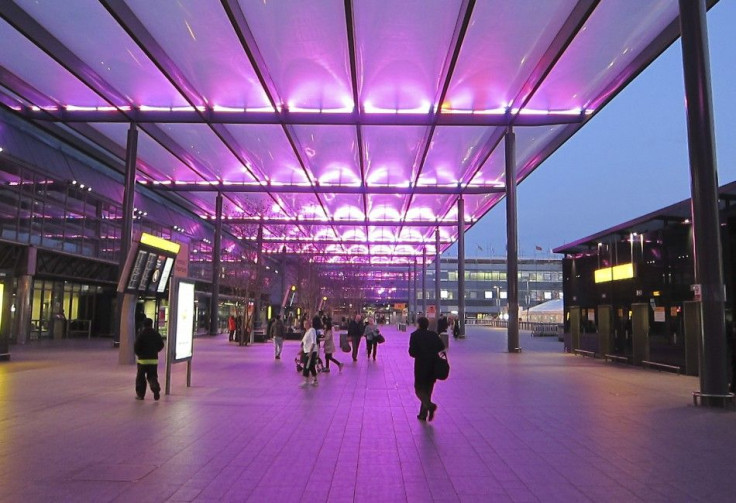UK Strike 30 November: Airports Report No Significant Delays

The Nov. 30 UK strike was to cause travel chaos across Britain, but passengers who were warned of lengthy delays are reporting better than usual conditions at the airport.
As Border Agency bosses took on regular airport jobs to man passport control, queues at Britain's two largest airports, Heathrow and Gatwick, were relatively short.
Heathrow, which asked airlines to halve the number of passengers flying into the airport during the strike, reported no significant immigration delays Wednesday morning.
The UK Border Agency said its contingency planning, which involved volunteers from other parts of the government, had minimized delays. Some 4,500 of the 6,000 UK Border Agency staff are union members.
Initially, the government considered calling on the army to help manage the border. However, they found sufficient volunteers from overseas embassies and other departments. Heathrow arrivals halls were at roughly two-thirds staffing capacity, rather than the 50% or below levels predicted.
The Prime Minister's press secretary, Gabby Bertin, is reportedly working on passport control at Heathrow Airport's Terminal One.
Heathrow Airport, one of the world's three busiest airports, is publishing regular tweets on the situation across each of its five terminals. So far, there have been no significant delays.
Heathrow prepared by stationing rows of chairs and portable toilets to deal with the possible overcrowding. Piles of bottled water, fruit and even diapers and baby food were placed in the immigration hall in anticipation of eight to 10 hour delays.
A sharp fall in passenger numbers helped aid the border process. Several Asian and Middle Eastern airlines cancelled flights to the UK while European and American airlines mostly discouraged non-essential travel and waived fees for passengers to change flights.
The cancellations and warnings came after Heathrow's Chief Operating Officer Normand Boivin warned airlines of long lines and delays up to 12 hours in the immigration hall.
The delays at immigration are likely to be so long that passengers could not be safely accommodated within the terminals and would need to be held on arriving aircraft, Boivin said in letter. This in turn would quickly create gridlock at the airport with no available aircraft parking stands, mass cancellations or departing aircraft and diversions outside the UK for arriving aircraft.
That has not been the case. Passengers seem to have heeded the warnings, as flights arrived into the UK with 30% fewer travelers than normal.
Queues were also shortened by a special operation suspending detailed passport checks at Heathrow for visitors from five countries outside Europe who do not need biometric visas to enter Britain.
British Airport Authority manager Steve Morgan told the Guardian that authorities in the U.S., Canada, Japan, Australia and New Zealand were carrying out full passport checks before Heathrow-bound passengers boarded their planes. Upon arrival in London, their passports were simply scanned to check that the person matched the passport.
Critics feared that the Border Agency walkout would create holes in the nation's security that terrorists and criminals could take advantage of.
So far, there have been no reports of any threats.
At prime minister's questions in the House of Commons, David Cameron claimed that the strikes had failed to have a significant impact.
At our borders the early signs are that the contingency measures are minimizing the impact, we have full cover in terms of ambulance services, and only 18 of the 900 job centers are closed, he said. So despite the disappointment of the party opposite, who support irresponsible and damaging strikes, it looks like something of a damp squib.
Many of the other transportation unions are not involved in the strike, which is scheduled to last just one day and involves workers who hope to stop public sector pension reforms that would require employees to work longer and contribute more each month. Ministers maintain the cuts are necessary as people are living longer and contributing less than needed to sustain the pension system.
A spokesman for the TUC, which is coordinating the strikes, said up to two million employees are taking part in the biggest bout of industrial action since the 1979 winter of discontent.
© Copyright IBTimes 2024. All rights reserved.






















